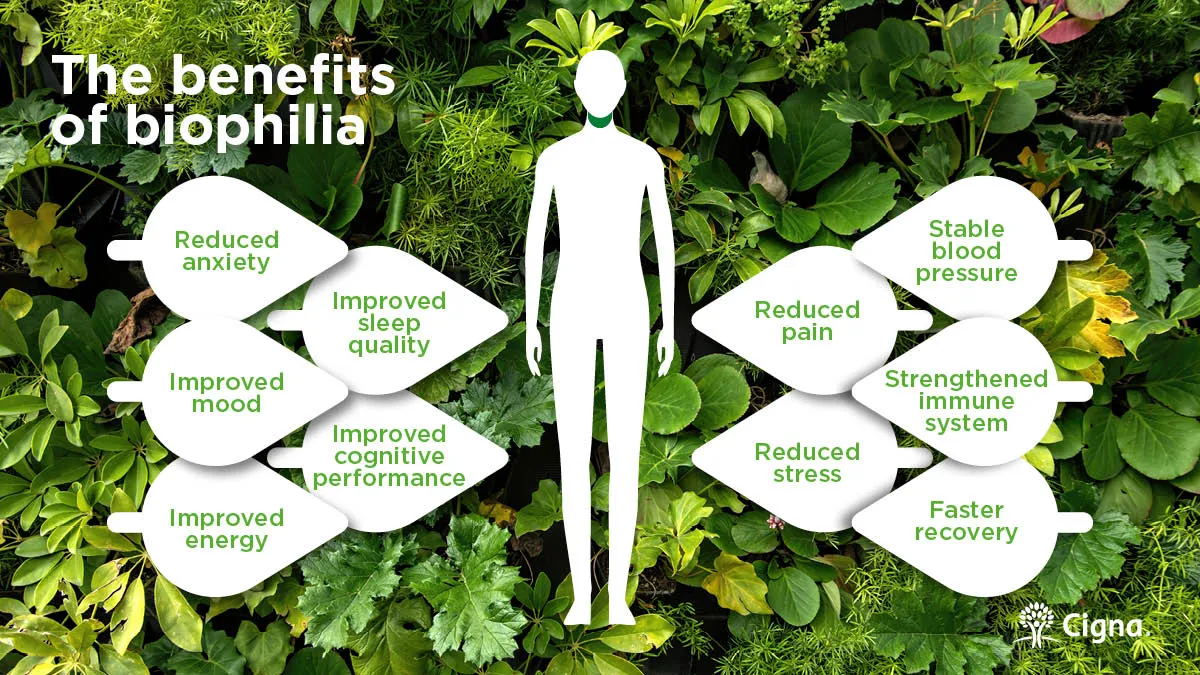- Für Dienstleister
- Für Makler
Einzelpersonen und Familien
Wen wir abdecken
- Im Ausland lebende Personen
- Familien
- Studenten
- Arbeiten im Ausland
- Rentner
- Über 60 Jahre
Top-Ziele, die wir abdecken
Krankenversicherung für Expats
- Wissenswertes zur Gesundheit von Expats im Hub
- Übersicht für Rentner zur internationalen Krankenversicherung
- Eine Übersicht zur internationalen Krankenversicherung für die Arbeit im Ausland
- Krankenversicherung für Expats im Detail
- Übersicht für Studenten zur internationalen Krankenversicherung
- Umzug ins Ausland während der Schwangerschaft
Krankenversicherung wählen
- Reiseversicherung oder internationale Krankenversicherung
- Krankenversicherung wählen
Länderratgeber
- Länderratgeber
FAQ
- Häufig gestellte Fragen
Arbeitgeber
Global Health Benefits Europa
- Krankenversicherungen für Arbeitgeber
- Cigna Inspire Versicherung
2 bis 149 Mitarbeiter
- Internationale Krankenversicherungen
Große Unternehmen
- Krankenversicherungen für große Unternehmen
IGO/NGO und Behörden
Themen
Einzelpersonen und Familien
-
Versicherungsschutzarten
-
Wo wir abdecken
- Argentinien
- Australien
- Österreich
- Brasilien
- Kanada
- Chile
- China
- Costa Rica
- Ägypten
- Frankreich
- Deutschland
- Griechenland
- Indien
- Indonesien
- Irland
- Italien
- Japan
- Kuwait
- Mexiko
- Niederlande
- Philippinen
- Portugal
- Singapur
- Südafrika
- Spanien
- Schweden
- Schweiz
- Thailand
- Türkei
- VAE
- Vereinigtes Königreich
- USA
- Vietnam
-
Ressourcen
- Wissenswertes zur Gesundheit von Expats im Hub
- Übersicht für Rentner zur internationalen Krankenversicherung
- Eine Übersicht zur internationalen Krankenversicherung für die Arbeit im Ausland
- Krankenversicherung für Expats im Detail
- Übersicht für Studenten zur internationalen Krankenversicherung
- Umzug ins Ausland während der Schwangerschaft
- Reiseversicherung oder internationale Krankenversicherung
- Krankenversicherung wählen
- Länderratgeber
- Häufig gestellte Fragen
-
Für Mitglieder
Arbeitgeber
-
Unsere Versicherungen
-
Für Mitglieder
IGO/NGO und Behörden
- Übersicht
-
Unsere Versicherungen
-
Für Mitglieder
Blog zum Thema Gesundheit
Für Makler
What is biophilia and why do we need it?
What is biophilia and why do we need it?
The feeling of calm we experience when out in nature, or even inside with plants, can be explained by the biophilia hypothesis.
Ever wondered why you feel that sense of grounding calmness when you’re surrounded by nature? It could be down to your biophilic tendencies…
What is biophilia?
In short, biophilia (or the biophilia hypothesis) is the innate instinct we have to connect with nature and other living beings. Think about some of your favourite ways to unwind and recharge: a walk in the park with the sun on your face and a coffee in hand; a day at the coast breathing in the salty sea air; an afternoon of pottering in the garden with soil between your fingers and blue skies overhead (read more about the benefits of gardening here). These are examples of biophilia, something experts believe is hardwired into us as humans.
So, what does it mean?
The word biophilia translates as ‘love of life’ from the Greek words bio (life) and philia (love). It was coined in 1964 by German-born American psychoanalyst Erich Fromm in The Anatomy of Human Destructiveness when he described it as ‘the passionate love of life and all that is alive.’ Don’t worry, we’ve only just heard of it, too. From the grass beneath our feet and the babbling water from our neighbour’s fountain to the insects in our potted plants, biophilia is the connection we have – and need – to nature and all living beings.
Do we all have biophilia?
In short, yes. Experts believe that it’s ingrained in our DNA. That said, it’s only very recently that research has been undertaken into just how much. One 2022 study using twins[1] looked into the hereditary and environmental factors of people’s need to be in nature and showed that both have a part to play. For instance, some of us are more likely to actively settle down in a very rural environment out of choice because we need that connection to nature, however others might be more willing to travel from their urban homes in order to seek it out. For some, that desire isn’t so prevalent and they’re content in an environment with less accessibility to green space.

Wie funktioniert das?
Research suggests that biophilia can have a positive impact on well-being by affecting three of our mind-body systems: physiological (eg. it reduces anxiety), psychological (eg. it reduces anger and fear) and cognitive functions (eg. it improves creativity and boosts mood). While the phrase was coined by Fromm, it was Harvard biologist Edward O. Wilson who wrote the book Biophilia twenty years later[2], exploring how evolution has impacted our biophilic tendencies today. He noted that frequent contact with nature is essential for brain development and that the value we give to living things and other species is something that has been influenced throughout evolution.
So, it’s good for us then?
If we look at health in the holistic sense, then connecting to nature is one of the best things you can do for your well-being, whether that’s adding aspects to your home (more on this later…) or spending the afternoon at your local park. Biophilia can boost our immune systems, support mental and emotional health, create social connections and aid physical recovery. In fact, bringing in aspects of biophilic design can also help reduce anxiety, improve cognitive performance and make for a better night’s sleep. One study showed that biophilic environments can improve short-term memory by up to 14 percent[3] while a further study, looking at the role of horticulture in a psychiatric ward, showed that patients with access to green space showed lower levels of psychiatric distress than those without it and that gardening could be a way of managing mental health[4].
What happens without a connection to nature?
A rise in urban environments and a world that’s heavily reliant on technology could go some way in explaining why some of us have disconnected from nature. For instance, one survey revealed that three quarters of UK children spend less time outside than prison inmates[5]. Not only can this disconnection from nature have a negative impact on our mood, increase mental and physical illness, lead to a diminished use of our senses and attention difficulties, it could also be affecting our environment, too. Research suggests[6] that keeping future generations interested and engaged with nature could be the key to thriving conservation and protecting our wildlife in years to come.

So, what are the best ways to get a biophilic fix?
Take a break. Research shows that 40 percent of Brits get just 15 minutes outside each day. So next time you’re thinking of working through lunch (again), remember that a half an hour stroll could have you coming back to your desk feeling in a better, more productive mood. And remember to opt for a window seat with a view if you can, so a little desk shuffle might be in order – your boss will thank you for it.
So being exposed to nature can make us better at our jobs then?
Absolutely. Alan Page, Director of Urban Planters a company that design, source, install and maintain indoor and outdoor plants and other plant-related products says: ‘We have long known that the most important thing to get right with any workplace, be it a home office or a sprawling open plan HQ, is creating a sense of well-being. People simply work better if their surroundings nurture them in some way.’
Think about your office or desk space. Have you got a view of the garden or a skylight letting in beams of natural light? Perhaps you have some vibrant plants in the room where you work. ‘Indoor plants offer a vital element of biophilia. This vital link to the natural world has been proven to boost our productivity, reduce stress and promote a sense of well-being[7/8]. What’s more, on a less obvious but nonetheless important level, live plants are busy working away in the background to clean our air of toxins and boost oxygen and humidity levels,’ says Alan. Research also indicates that surrounding ourselves with nature can improve creativity and increase our attention span[9]. Brainstorm in the park, anyone?
What about biophilic design?
While a skylight is a fabulous feature to open up a room and bring nature in, it’s not the cheapest or most straightforward way to bring a dose of the great outdoors in. Biophilic design is a way of bringing elements of nature and living beings into your space without having to make huge structural changes. For instance, consider nature’s colour palette and how you decorate your interior walls to help channel a feeling of the great outdoors. Think mossy greens, sky blues and crisp white walls to reflect natural light. Play with textures and use natural materials such bamboo, wood or stone for furniture to create tactile surfaces that reconnect you with nature.
And if all else fails…
Cheat. A study from Vrije University Medical Centre in the Netherlands[10] showed that even looking at a photograph of a green setting can help reduce stress by activating the parasympathetic nerve system, part of our rest response. Worth considering when you’re choosing your next screensaver, but remember that it’s certainly not a replacement for the real thing…
Haben Sie eine Frage? Wir sind Ihnen gerne behilflich.
If you need expat health insurance alongside your travel insurance, we have options to suit your needs and budget.
[1] https://journals.plos.org/plosbiology/article?id=10.1371/journal.pbio.3001500#abstract0
[2] https://www.researchgate.net/publication/303961317_EO_Wilson's_concept_of_biophilia_and_the_environmental_movement_in_the_USA
[3] https://www.sciencedirect.com/science/article/abs/pii/S0360132318300064
[4] https://www.healthdesign.org/knowledge-repository/view-through-window-may-influence-recovery-surgery
[5] https://www.theguardian.com/environment/2016/mar/25/three-quarters-of-uk-children-spend-less-time-outdoors-than-prison-inmates-survey
[6] https://www.rspb.org.uk/our-work/conservation/projects/connection-to-nature/
[7] https://www.bbc.com/worklife/article/20200929-how-biophilic-design-can-create-a-better-workspace#:~:text=An%20increasing%20body%20of%20evidence,a%20more%20holistic%20multisensory%20approach.
[8] https://www.ncbi.nlm.nih.gov/pmc/articles/PMC5663021/
[9] https://www.bbc.com/worklife/article/20200929-how-biophilic-design-can-create-a-better-workspace#:~:text=An%20increasing%20body%20of%20evidence,a%20more%20holistic%20multisensory%20approach.
Verwandte Artikel
©Cigna 2022
This article serves only as a reference and is intended for informational purposes only. Nothing in this article constitutes legal, tax, financial planning, health or medical advice including diagnosis or treatment. Any reference to products or services offered by Cigna are available except where prohibited by applicable law and subject to terms and conditions. Cigna have no involvement in, nor are we liable for, any decisions and/or outcomes that are made or determined by FocusPoint International.
Kontakt
Hier finden Sie die richtige Information - Von unsrer Verkausfabteilung bis zu generellen Information, einschließlich Kontaktinfromatinon für existierende Cigna Kunden.
KontaktinformationenBeliebte Links
Ressourcen
© 2025 Cigna Healthcare. Alle Rechte vorbehalten.
* Bitte beachten Sie, dass dies eine Darstellung der verfügbaren Leistungen ist und die für jede Leistung geltenden spezifischen Bedingungen und Ausschlüsse hier nicht enthalten sind. Die Leistungen können geändert werden. Einige Leistungen sind Teil des optionalen Moduls. Ausführliche Informationen finden Sie im Kundenleitfaden.
Diese Website wird zur Verfügung gestellt von Cigna European Services (UK) Limited, einem in England und Wales eingetragenen Unternehmen mit Sitz 13th Floor, 5 Aldermanbury Square, London EC2V 7HR und Registernummer 00199739. Der Name und das Logo von Cigna Healthcare sowie andere Cigna Healthcare Marken sind Eigentum von Cigna Intellectual Property, Inc. und für die Verwendung durch die Cigna Group und ihre operativen Niederlassungen lizenziert.
Bei der Auswahl dieser Links verlassen Sie Cignaglobal.com. Cigna Healthcare hat keine Kontrolle über den Inhalt oder die Links der verlinkten Seiten.

